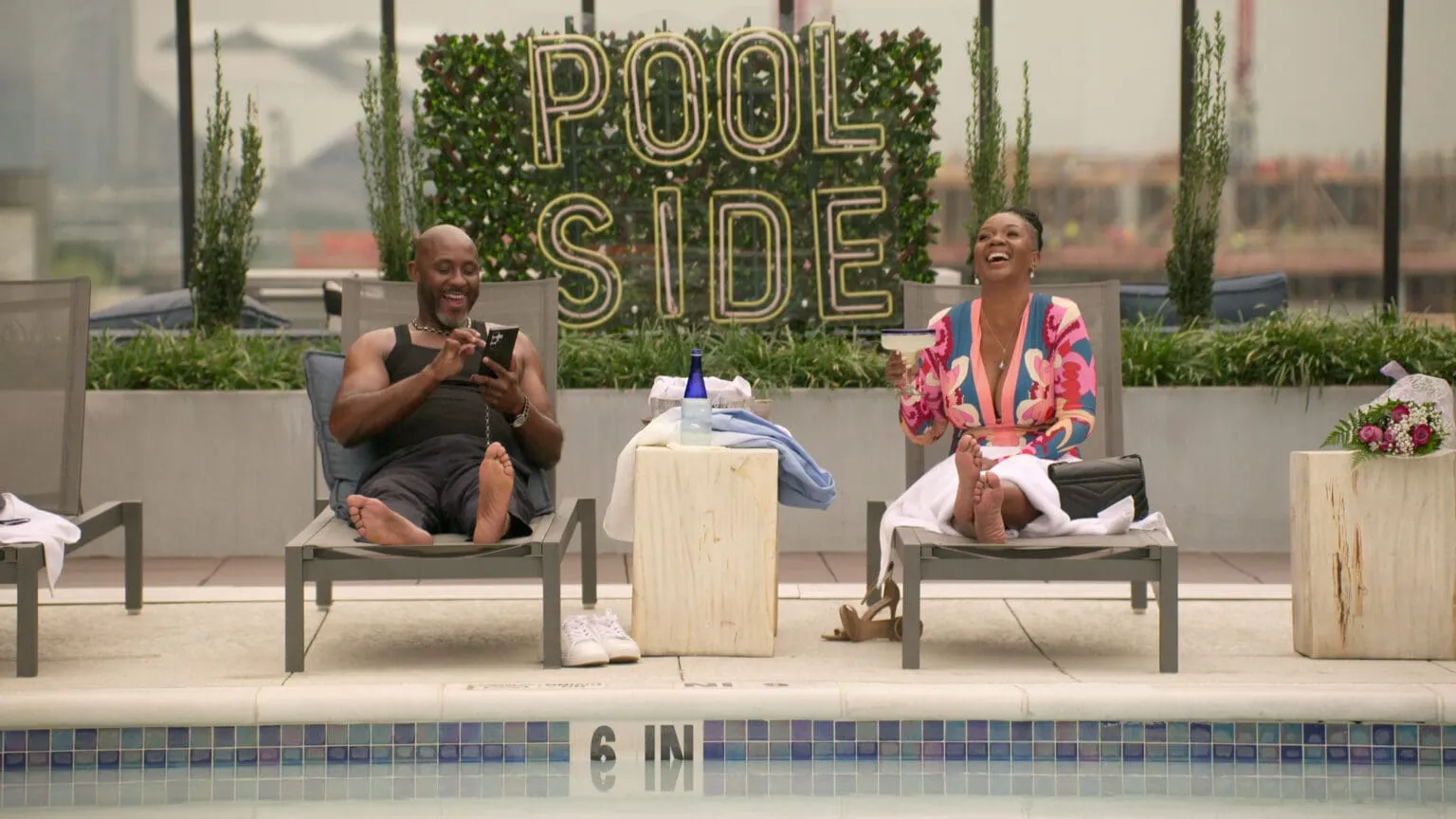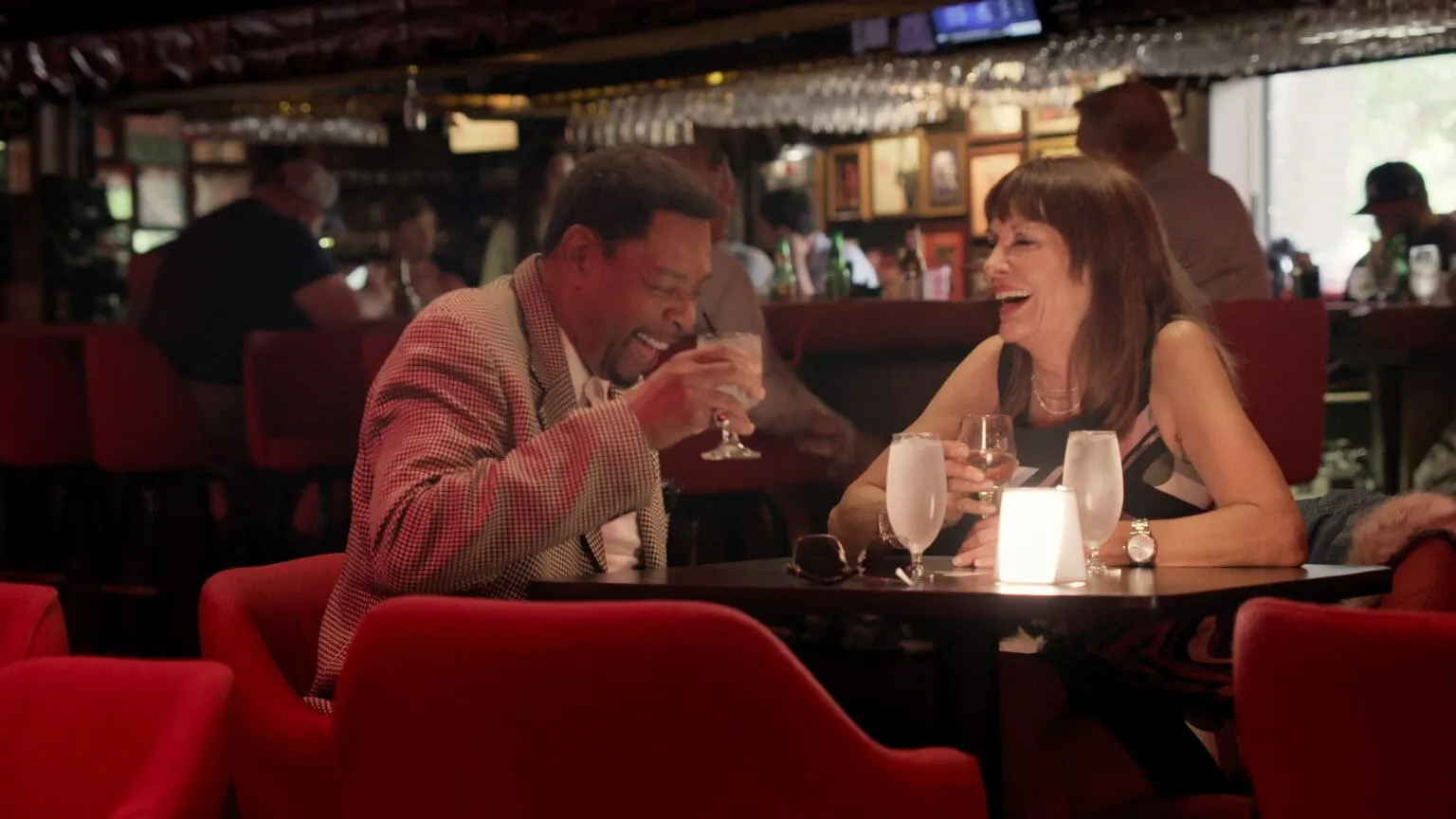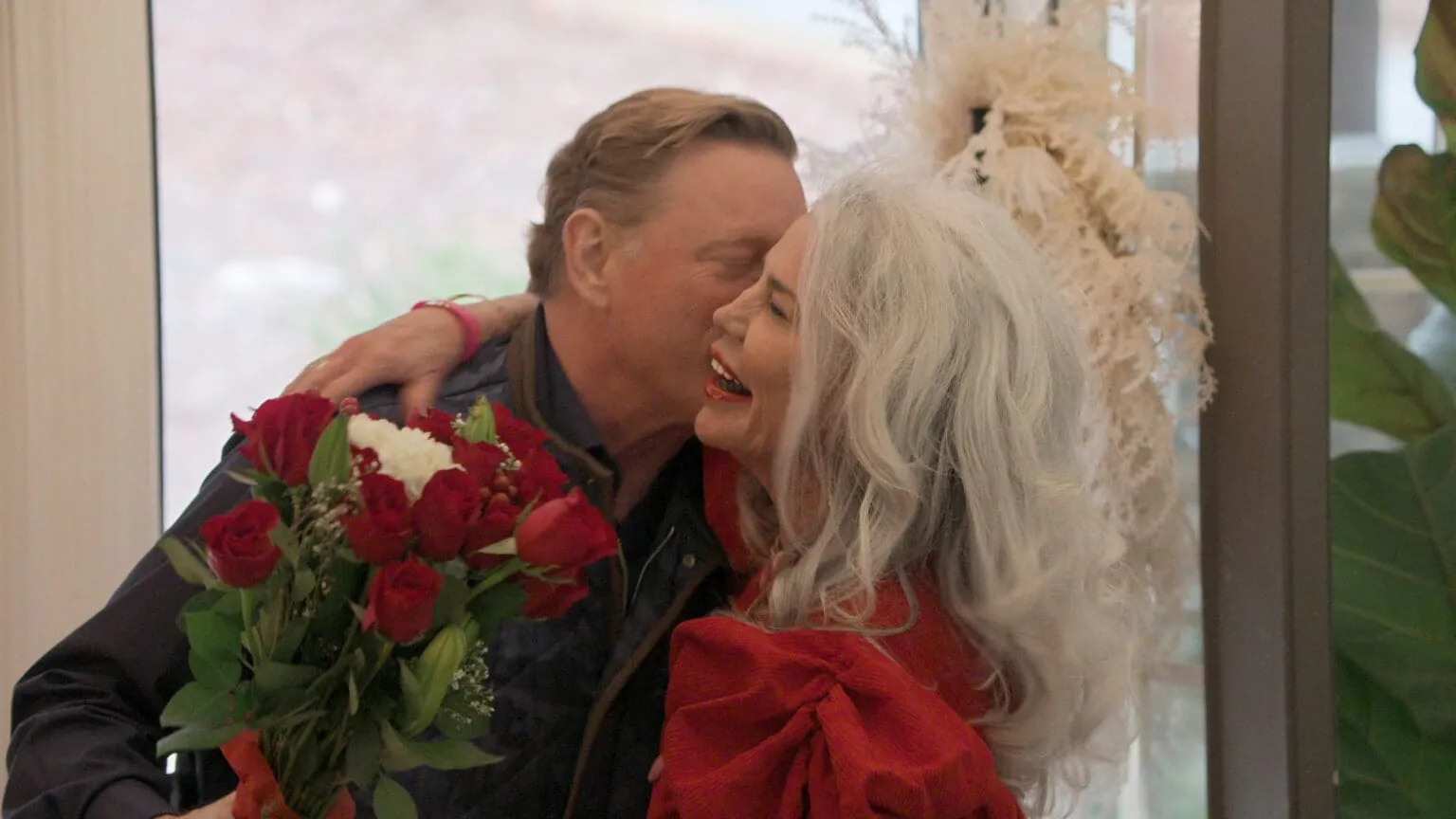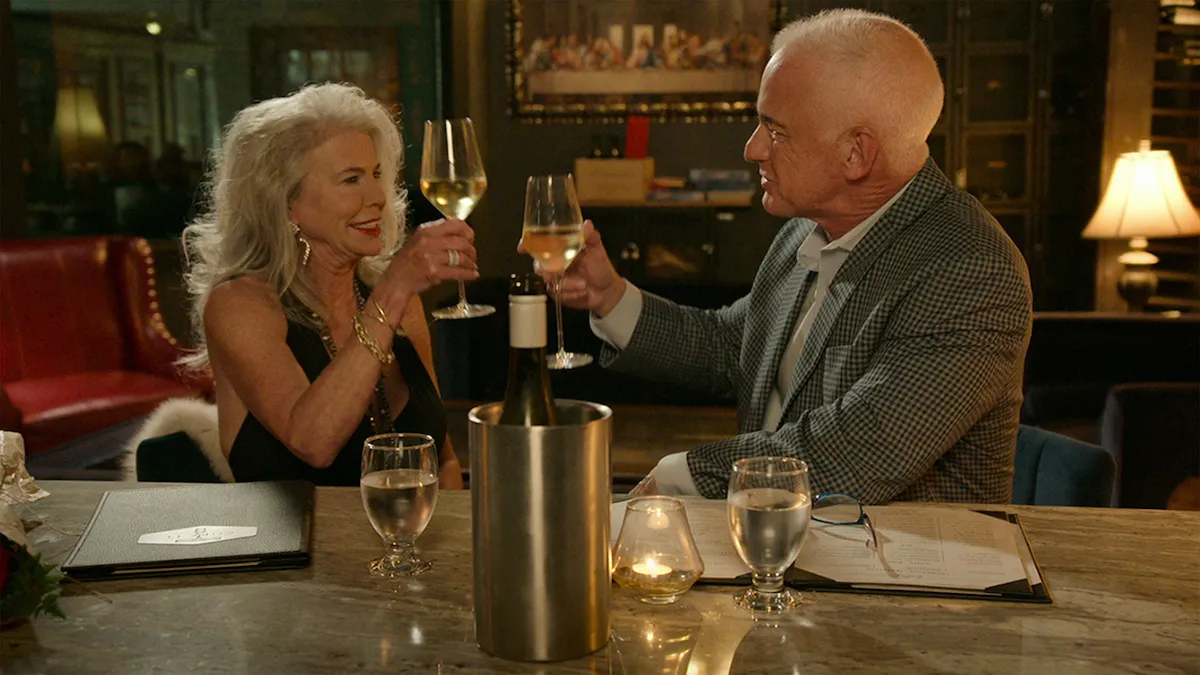The series centers on the concept of rediscovering connection for individuals in their later years who have experienced divorce or the loss of a spouse. The show focuses on a group of mature singles in their 50s through 70s as they explore the landscape of dating anew.
It presents the idea that companionship need not be confined to youth, offering a fresh perspective on love that defies conventional expectations. The program spotlights the challenges and excitement that come with reentering the dating scene after significant life transitions.
Set against a backdrop where personal history and social changes merge, the series reflects the evolving attitudes toward aging and relationships. It provides a stage where experiences of loss, resilience, and the hope of new beginnings intersect with the modern dating world. The cultural climate, marked by evolving views on romance among older adults, is brought to the forefront without resorting to clichés or over-simplifications.
Notably, the series benefits from the involvement of high-profile production figures, whose influence brings an air of optimism and sincerity to the project. Their presence helps shape a tone that feels both earnest and refreshing, encouraging viewers to reconsider the potential for meaningful connection later in life.
Structuring Connection: The Show’s Format and Flow
The series unfolds over eight installments, each lasting roughly 45 minutes. The structure is clear, with episodes centered on the experience of blind dates followed by reflective segments. These segments serve as moments for the participants to discuss their encounters and personal reactions, a format that not only presents the excitement of the dating process but also captures the emotional realism behind each interaction.
The narrative maintains multiple parallel tracks as it follows each individual’s path. A series of intimate portrayals captures the early uncertainty of approaching new relationships and gradually reveals personal growth as the participants share their successes and setbacks. The storytelling shifts between different experiences, ensuring that no single path dominates, and in doing so, provides a mosaic of emotions and revelations that speak to the complexities of starting over in later life.
Expert guidance is seamlessly woven into the series. The inclusion of advice sessions plays a significant role in the unfolding drama. These segments, where a relationship specialist offers insight and practical tips, are positioned carefully throughout each episode. They serve as moments for the participants to reassess their approaches and make subtle adjustments, adding a layer of introspection to the otherwise spontaneous nature of blind dating.
Each debrief session acts as a moment of clarity, allowing viewers to understand the underlying motivations of the participants. The careful arrangement of these reflective pauses within the narrative helps to maintain a consistent flow, balancing the spontaneity of dating with thoughtful self-assessment. This structured yet fluid approach to storytelling transforms individual encounters into a collective exploration of personal reinvention, presenting a snapshot of love reimagined for a later chapter in life.
Character Portraits: The Diverse Faces of New Beginnings
The series introduces us to a group of mature singles, each with a rich backstory shaped by years of personal experience. We meet daters ranging from their early fifties to their seventies, individuals who have experienced love, loss, and life’s unexpected turns.
Their personal histories—whether marked by divorce or the loss of a spouse—are conveyed through thoughtful interviews and moments that reveal both their strength and their insecurities. One participant, for instance, offers a glimpse into a life defined by both resilience and the cautious hope that accompanies a fresh start, while another radiates a candid humor about rediscovering romance in later life.
Interactions among the cast members extend beyond the dating scenes, with family and friends playing significant roles. Occasional appearances by children and close confidants provide additional layers to the narrative, highlighting how external opinions shape the self-perception of these daters. Their relationships on screen are multifaceted, blending light-hearted banter with sincere moments of reflection that expose the complexity of re-entering the dating arena after years of solitude.
The show presents its characters as genuine individuals, unfiltered and honest in their approach to a reinvented social life. Their struggles are portrayed with sensitivity, balancing the thrill of meeting new people with the internal challenges they face.
Each encounter and every shared moment contributes to a picture of life where new beginnings coexist with the weight of past experiences. The portrayal emphasizes that real life is a mix of humor, caution, and hope, offering viewers a look at people who are unafraid to take risks despite the vulnerabilities that come with putting oneself out there.
Expert Guidance: Shaping Modern Courtship
Logan Ury, a respected relationship specialist and behavioral scientist, plays a pivotal role in the series. Her expertise is evident as she offers clear, research-backed advice tailored to individuals re-entering the dating scene after years of absence.
With a background that combines academic insight and practical experience, Ury guides the participants through social cues and communication techniques essential for engaging in today’s dating environment. Her role extends beyond simply providing tips; she serves as a catalyst for change in the personal lives of the daters, encouraging them to reconsider long-held assumptions about vulnerability and intimacy.
Her coaching sessions are interspersed throughout the episodes, functioning as a series of focused segments where practical strategies are explained with precision. These moments are dedicated to teaching contemporary dating etiquette and effective conversational skills that help reduce awkwardness during blind dates.
Ury’s advice often brings forward humor and light-heartedness, which contrasts with the inherent seriousness of starting over in one’s personal life. This measured approach makes the coaching segments engaging while also prompting deeper personal reflection among the participants.
The influence of Ury’s guidance becomes clear in the individual progress of the daters. Her interventions sometimes result in subtle shifts in behavior, leading to small yet significant breakthroughs that reveal layers of personal growth.
Specific instances within the show highlight moments when participants display increased confidence or gain clarity about what they desire in a partner. Such breakthroughs not only alter the course of their romantic pursuits but also contribute to an ongoing conversation about self-improvement and adaptability in later life. Through her methods, the series portrays the dating process as an evolving practice, where expert insights help reshape traditional views of romance in a shifting cultural landscape.
Cinematic Craft and Authenticity
The production design presents a clear focus on visual clarity and emotional nuance. Each scene is arranged with care, employing clean lines and measured compositions that support the narrative of heartfelt, real-life experiences.
The camera work uses a mix of steady and dynamic shots, offering close-ups that capture intimate moments and wider angles that reveal the setting in a thoughtful manner. The editing maintains a rhythmic pace that underscores the participants’ spontaneous interactions and reflective pauses without overstaying on any single moment.
The series maintains a tone that feels accessible and genuine, blending moments of levity with sincere displays of vulnerability. The pacing provides room for both playful exchanges during dates and more introspective sequences when individuals process their experiences.
The visual style, while polished, does not detract from the authenticity of the encounters; rather, it enhances the viewer’s ability to witness the natural unfolding of each interaction. This balance invites the audience to focus on the human element behind every conversation and smile.
High-profile involvement in the production lends an added sense of trustworthiness and warmth to the show. Leadership from established figures contributes a degree of finesse in the overall design, influencing everything from lighting choices to scene transitions.
The production team manages to strike a careful balance between a refined cinematic look and the unvarnished reality of the participants’ lives. In this manner, the visual presentation supports the series’ commitment to presenting genuine moments of connection, ensuring that every technical decision enhances the story rather than distracting from it.
Reimagining Love: Themes of Resilience and Reinvention
The series deeply explores love’s rediscovery during later life, presenting a nuanced portrayal of older adults exploring modern dating. It reveals the genuine experiences of individuals returning to romantic connections after extended periods.
The participants’ stories uncover raw vulnerability and strength when re-entering romantic interactions. This presentation moves beyond idealized romance, instead examining authentic challenges older individuals encounter while seeking meaningful connections.
Within cultural discussions, the series highlights shifting perspectives about older adults in media representations. Traditional narratives frequently excluded mature individuals from romantic narratives, suggesting love belongs exclusively to younger generations. By focusing on older daters, the series challenges established stereotypes, presenting mature adults as vibrant, active participants capable of experiencing romantic connections.
The narrative encourages viewers to recognize personal value and transformation potential. Participants demonstrate that emotional growth and companionship remain accessible regardless of age. Their experiences communicate a profound message: personal fulfillment continues throughout life’s journey, unconfined by chronological limitations.
The Review
The Later Daters Season 1
The Later Daters offers a refreshing and heartfelt exploration of love in later life, challenging stereotypes around aging and romance. With its authentic portrayal of mature daters navigating the modern dating scene, the series strikes a delicate balance between vulnerability and optimism. While the coaching element adds an insightful layer of depth, it’s the participants’ resilience and growth that truly resonate. The show successfully reframes aging as an opportunity for reinvention, delivering a positive, engaging narrative about self-worth and second chances.
PROS
- Authentic portrayal of older adults navigating modern dating.
- Heartfelt, relatable characters with genuine emotional depth.
- Thoughtful exploration of self-worth, reinvention, and second chances.
CONS
- Pacing can occasionally feel slow during reflective moments.
- Limited exploration of broader social issues beyond the dating aspect.




















































